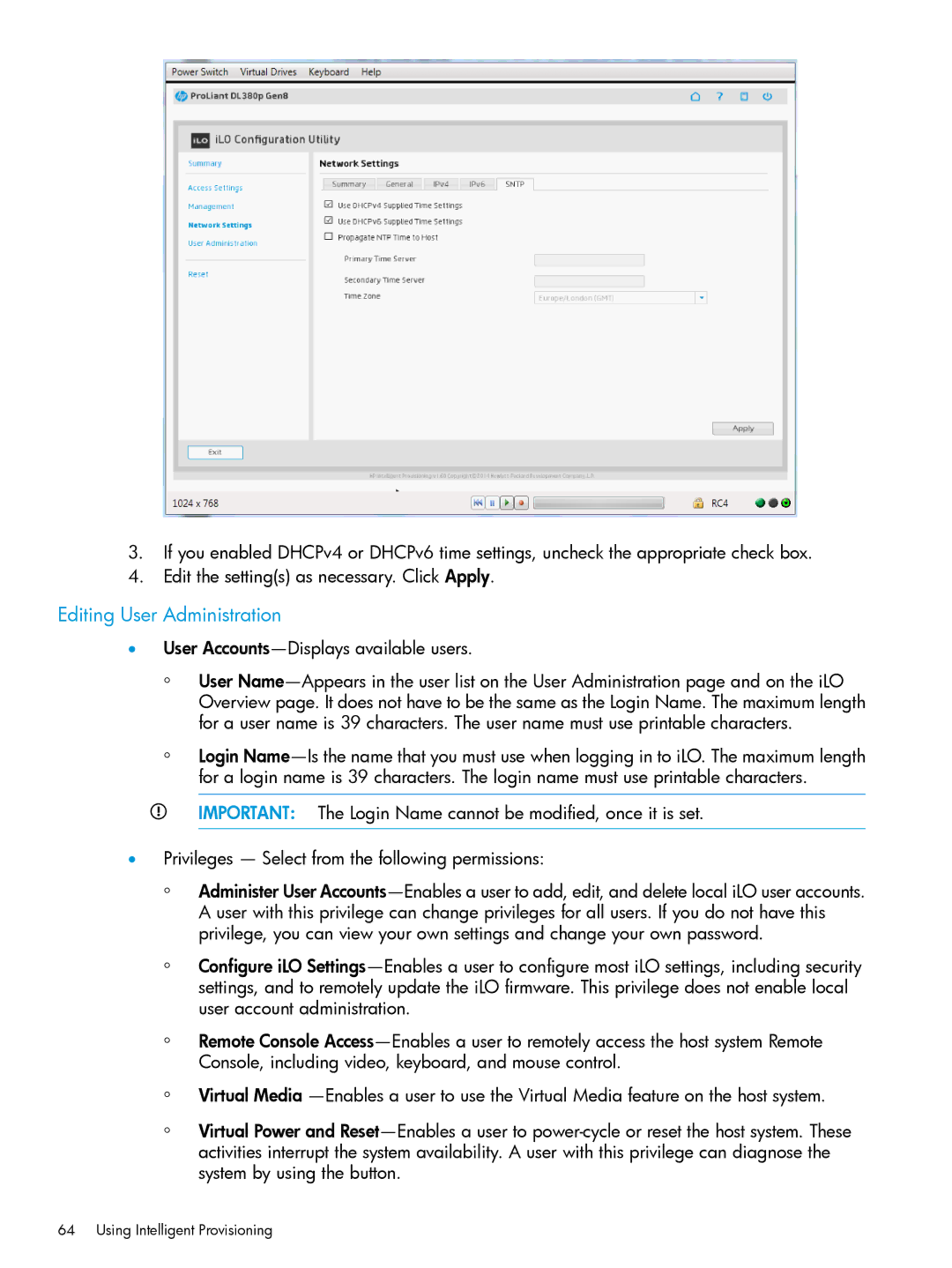3.If you enabled DHCPv4 or DHCPv6 time settings, uncheck the appropriate check box.
4.Edit the setting(s) as necessary. Click Apply.
Editing User Administration
•User Accounts—Displays available users.
User Name—Appears in the user list on the User Administration page and on the iLO Overview page. It does not have to be the same as the Login Name. The maximum length for a user name is 39 characters. The user name must use printable characters.
Login Name—Is the name that you must use when logging in to iLO. The maximum length for a login name is 39 characters. The login name must use printable characters.
IMPORTANT: The Login Name cannot be modified, once it is set.
•Privileges — Select from the following permissions:
Administer User Accounts—Enables a user to add, edit, and delete local iLO user accounts. A user with this privilege can change privileges for all users. If you do not have this privilege, you can view your own settings and change your own password.
Configure iLO Settings—Enables a user to configure most iLO settings, including security settings, and to remotely update the iLO firmware. This privilege does not enable local user account administration.
◦Remote Console Access—Enables a user to remotely access the host system Remote Console, including video, keyboard, and mouse control.
Virtual Media —Enables a user to use the Virtual Media feature on the host system.
Virtual Power and Reset—Enables a user to power-cycle or reset the host system. These activities interrupt the system availability. A user with this privilege can diagnose the system by using the button.
64 Using Intelligent Provisioning

